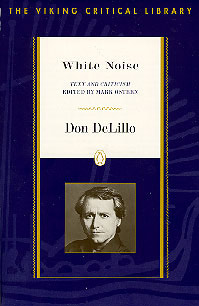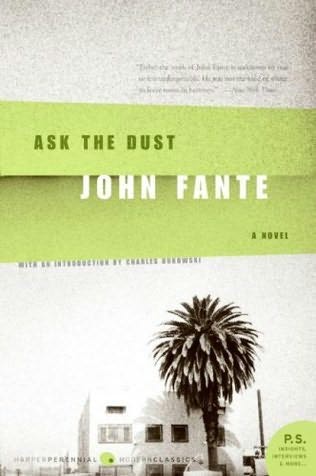
I originally wrote this up for the
Pajiba Movie Club discussion of
Mulholland Drive (
here) but after spending so much time on it I wanted to keep a copy on my own blog. Since the only people who read this already know me from Pajiba this is pretty much a re-post, but, oh well. As the movie club discussion makes clear there is no one way to interpret the events in this movie and my interpretation is far from complete (I've never even given that much thought to the neighbor...) but I think it is a pretty good framework for understanding the movie and making sense of it all (
Spoilers, obviously).
___________________________________
Basically, the whole movie is a dream that Diane Selwyn (Naomi Watts) has shortly before killing herself. Everything that comes before the Club Silencio/opening of the blue box/"hey pretty girl, time to wake up" part is her dream. Everything that comes after is the "real world" although most of it takes place in flashbacks. In the flashbacks we finally learn who Naomi Watts character really is (a struggling actress getting chewed up by Hollywood, recently left by her lesbian lover who is now dating a big director) and what she's done (hired someone to kill her former lover). These events and the resulting guilt take their psychological toll on Diane. They inspire her dream and then lead her to suicide.
It only adds to the confusion that Lynch decides to fuck with us in dream world and rotate names and identities. For example: The Naomi Watts character is named Diane. When she is at Winkies hiring a hit man she is served by a waitress named Betty. Then in her dream she adopts the name Betty when she reinvents herself as a fresh-faced and naturally talented ingenue. At one point in the dream she is at that diner where the waitress now has her name, Diane, which looks familiar(obviously) and therefore gets absorbed into the amnesia investigation as they search for the identity of Rita. This search eventually leads them to Diane Selwyn's apartment where they find the dead body that foreshadows Diane's eventual suicide (lying in the same position that sleeping Diane is in when she wakes up). But you don't have access to any of this information until the end of the movie and by then you are so confused and frustrated that you don't even want to try to understand what is going on.
It actually makes a lot more sense to watch the last half hour first, which is what I finally did last week. The last half hour is mostly flash back to the events leading up to her dream and suicide.
------------
Here is a synopsis of the events that actually happen in the "real-world": (feel free to skip this part)
Diane wakes up looking like hell with her neighbor pounding on the door wanting her stuff back [also, notice there is a blue key on the coffee table in this scene, this is a sign that the hit man has completed the job she hired him for: that her ex-girlfriend is already dead] She is very emotional, and appears to hallucinate her (dead) ex-girlfriend Camilla Rhodes (Laura Harring). Then she starts flashing back to some topless lesbian play on the couch, when Camilla started to break up with her. "It's him, isn't it." Diane says, and then we flash back further to Diane and Camilla on the set of some 50's movie. Justin Theroux is the director and apparently the "him" in Camilla's life. Camilla is the star of the film and Diane is on the sidelines with a smaller part.
The flashback continues to Camilla inviting Diane to some sort of party at the director's house on Mulholland Drive. She arrives in a car, "we aren't supposed to stop here" but it is just some back way to the house where we see a lot of other familiar faces (familiar because this party occurred in the past and the people at the party were incorporated into her dream). At the party Diane tells us a little bit more about herself: She came to LA from Deep River, Ontario after winning a dance contest and inheriting some money from her aunt. She met Camilla on the set of a movie called "the Sylvia North Story". Daine wanted the lead but it went to Camilla. They became friends (and, we presume, lovers) and Camilla, the more successful actress, continued to help Diane get parts in some of her other films. We can assume that this is all the true back story of these characters in the real-world.
Diane grows more agitated as the party progresses. A strange woman comes over and kisses Camilla. The director guy and Camilla start to make an announcement (are they engaged?) but can't stop laughing. Note: Since this part of the movie is a flashback that Diane is having from her apartment (after she wakes from the dream, before she kills herself) we can question the reliability of her memories (were they really laughing uncontrollably and shooting her weird looks or is this just the way that Diane remembers the betrayal and humiliation of being invited to their party?)
And then, still in flashback, we jump to a Winkie's Diner where Diane is talking to a hit man. She is going to use the money she inherited from her aunt to have Camilla killed. She shows him a picture: "this is the girl." The hit man tells her that once she pays him, it is done. He shows her a blue key which is going to be used to signify to her when the job is done (which we saw on her coffee table before this extended flashback). Then things get a little surreal as Diane's deteriorating psychological state starts to intrude on the flashback. There is the demon/homeless person behind the diner and the crazy miniature old people who come after her- this seems to be somehow a manifestation of her guilt over having Camilla murdered- and then the flashback ends and we return to real-world, real-time Diane in her apartment at the breaking point.
The mini old people come in under her door and grow to full size but there is still knocking at the door (maybe the police, the two officers who were looking for her?) Diane is being chased around the room, tormented by her demons and her guilt (are these manifestations of her parents? Her aunt? Just some couple she met at the airport that represent her break from innocence on her arrival in LA?) and she runs screaming into her bedroom, pulls a gun out of the end table and shoots herself in the head. There are a few superimposed images of Diane and Camilla together, ghostly remnants of her dream as the last few synapses fire before fade out. The whole film (real-world, real-time) takes place entirely in the apartment. First she has the dream, then she wakes and has the flashbacks, then she commits suicide.
/ boring Summary
---------------
The structure of the movie is difficult of follow but it does make sense. The primary story being told in the film is the dream-story, not the actual one (like the Wizard of Oz). We get the dream first, which is disorienting because it follows a kind of dream-logic that never gives you a firm hold on what is going on. It is filled with vague illusions, symbols, and references to real-world events (that haven't been revealed to us yet) and introduces a lot of mysteries that don't get resolved (these are dream mysteries, dead ends that don't have any resolution).
After waking from the dream we get the flashbacks to the "real-word" events that lead to the dream. This provides us with a context to understand the dream and Diane's fragile mental state (it's also a hell of a performance by Naomi Watts, who wasn't even nominated for an Academy Award, but Bridget Jones was, and Halle Berry won). Once we know the real-world story we see how the dream is Diane's idealized and stylized fantasy of Hollywood, the movies, herself, and her lover... And all the while the darker side of things, the jealousy, the guilt over what she's done, the power and corruption that control the industry and the evil that lurks around corners or within herself continually intrudes on that dream world and eventually tears it apart.
Watching it again (and again and again) we see how artifacts from the real-world and flashback scenes at the end of the film keep turning up in bizarre places in the dream world (stack of money the purse, blue key, black & white head shot, espresso). And how people from the real world were repurposed for the dream. Aside from the idealized version of herself there is the director who gets emasculated, thrown out of his house, loses control of his movie, and basically has his life torn apart until he is put in his place. Camilla/Rita is now dependent on her for help and support, and part of a sexual fantasy as well. The hit man she hired is a bumbling idiot (the assignment to kill Camilla/Rita obviously failing) and goes through the darkly comic scene in the office building. Even small characters who appear in the background at the party get incorporated into her dream as powerful and shady figures. Coco, the director's mother, becomes the landlady at her apartment. The Castigliane brother with the espresso can be seen at the party, and a strange man in cowboy clothes passes out of the room at one point. It is reminiscent of the ending of The Wizard of Oz ("And you and you and you...and you were there.") where it is revealed that the main events of the film were a dream populated by familiar people and events in different roles.
Even bits of dialogue from her real-world memories were turning up in the dream most notably "this is the girl" which we learn was something actually said by Diane as she paid to have Camilla killed and gets repeated in the dream by the powerful and unnerving men in suits who seem to be controlling events from behind the scenes. It was actually Diane that set these events in motion (that's her phone by the red lampshade and the ashtray that rings at one point).
But I've gone on long enough and still barely covered the surface-level understanding. What does all of it mean? There are so many great scenes, so much symbolism and complex layers to unravel...





